“A fantastic ride”: Nicolas Papadopoulos bids adieu, sort of
A former manager in international firms, a world-renowned researcher, a passionate professor, and a true pioneer in the evolution of the Sprott School of Business, Dr. Nicolas Papadopoulos is embarking on a new chapter in his career – “retirement with a twist,” as he calls it, since he remains in the school to focus on his research.
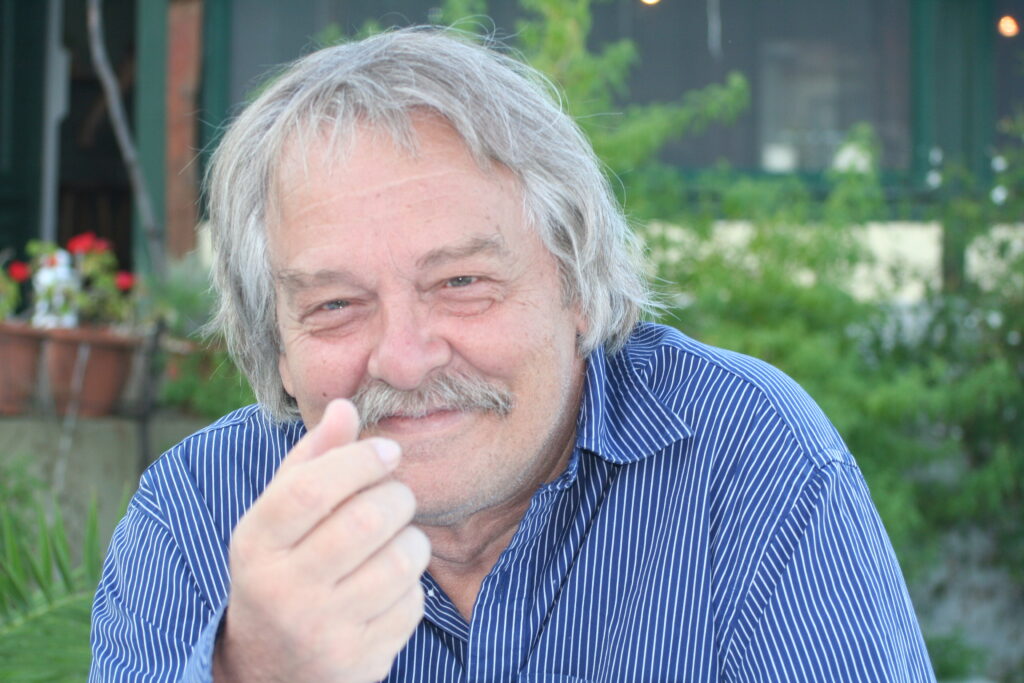
“I have been here a long, long time,” he said. “It’s been a fantastic ride.”
Nicolas’ relationship with the business world spans 50 years, with 45 of them in academia and 41 of those to date in the Sprott School. After graduating from university in Greece, he did his compulsory two-year military service and worked for Exxon, 3M, and Procter & Gamble, moving to the United States in-between with his wife, Irinela, where he obtained his MBA and she her Bachelor of Psychology from Washington State University.
“We had met several Canadians and we were always impressed by how friendly and interesting people they were,” said Nicolas, “reflecting principles we liked from a country that is admired globally for its commitment to peace and human rights.” And not just that, he continues: “Hearing exotic stories of survival and coping with temperature swings from -40C in winter to +40C in summer was thrilling!”
“Over time, we had developed a dream of immigrating to Canada and working in academia.”
Then one night, as they were celebrating their wedding anniversary and a promotion with a party at home in Athens, he received a call from a friend in the MBA who had become a professor at Lakehead University in Thunder Bay.
“Remember when you said you’d like to be an academic in Canada? Well, do you want to come? We have a position for you.”
So, in 1975, Nicolas and Irinela moved to Lakehead, where he took up his first teaching position and she obtained her master’s degree.
While attending a conference, he met a colleague from Carleton University who, rather impressed by Nicolas’ research, encouraged him to apply for a position opening at Carleton.
“I did and the rest is history,” said Nicolas.
Throughout his tenure, Nicolas has been dedicated to helping the School grow and develop into the renowned institution it is today. Over the years, he served as director of the school, teaching area coordinator for international business, associate dean for research, and director of the school’s IB research unit. In 2008, he was appointed to the prestigious rank of Chancellor’s Professor.
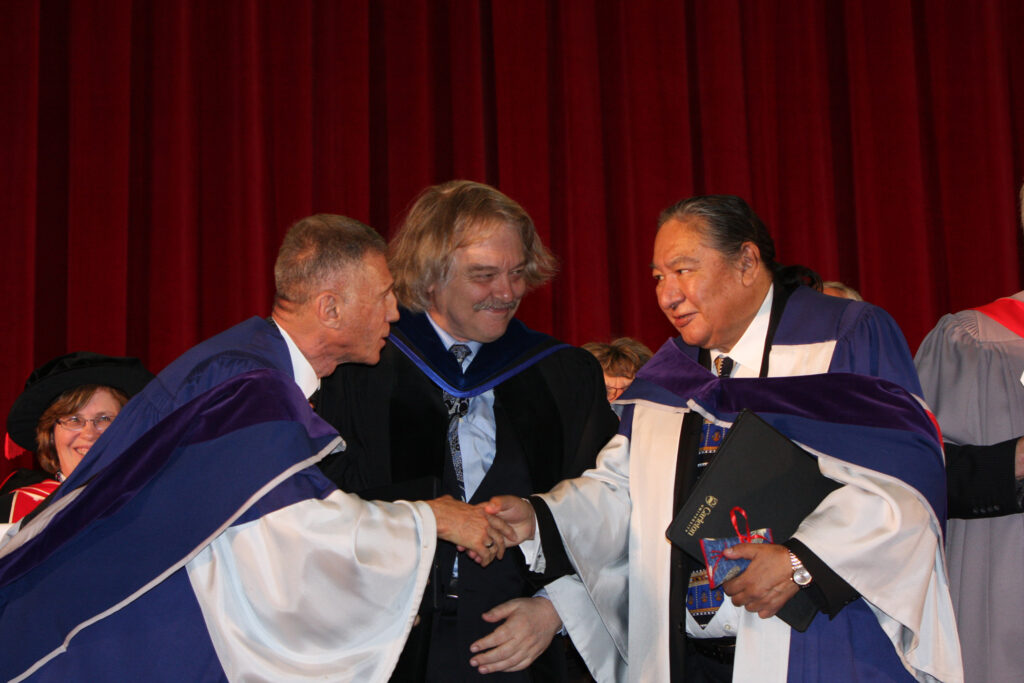
Elijah Harper, the Indigenous elder and former Chief of the Red Sucker Lake community who played a historic role in the Meech Lake Accord constitutional discussions, receives an honorary degree at Carleton after being nominated and presented at convocation by Nicolas.
Upon his retirement Nicolas was appointed to Distinguished Research Professor, and intends to stay busy for the next five years delving into his research.
“He is an authority in the field of international business and marketing,” said José Rojas-Méndez, professor of international business at Sprott, who has known Nicolas for 20 years. “He is renowned and well-reputed across the world. And, he is inspiring.”
Nicolas has more than 340 publications to his credit – including 15 books and over 90 book chapters and journal articles. He is recognized around the world as a leading expert in international market selection, place images and country-of-origin effects, and nation branding. Among his many distinctions, he has won ten best paper awards and serves on the editorial or senior advisory boards of the major journals in his field.
“With my co-researchers, our studies have covered 91 countries so far. And, in doing that, I have worked with well over 30 to 40 colleagues here and internationally, which has been a real pleasure.”
As his research program expanded, so did the school. When he arrived at Carleton, Sprott “had a grand total of 12 faculty and two staff members,” and, looking at how far it has come, he said the “metamorphosis has been wonderful to watch and exciting to be a part of.”
When asked to reflect upon his time here, Dr. Papadopoulos said that he considers his introduction and building of international studies in the Sprott School as his greatest achievement, followed closely by the Bachelor of International Business (BIB) and PhD programs as well as the concentrations in the Bachelor of Commerce.
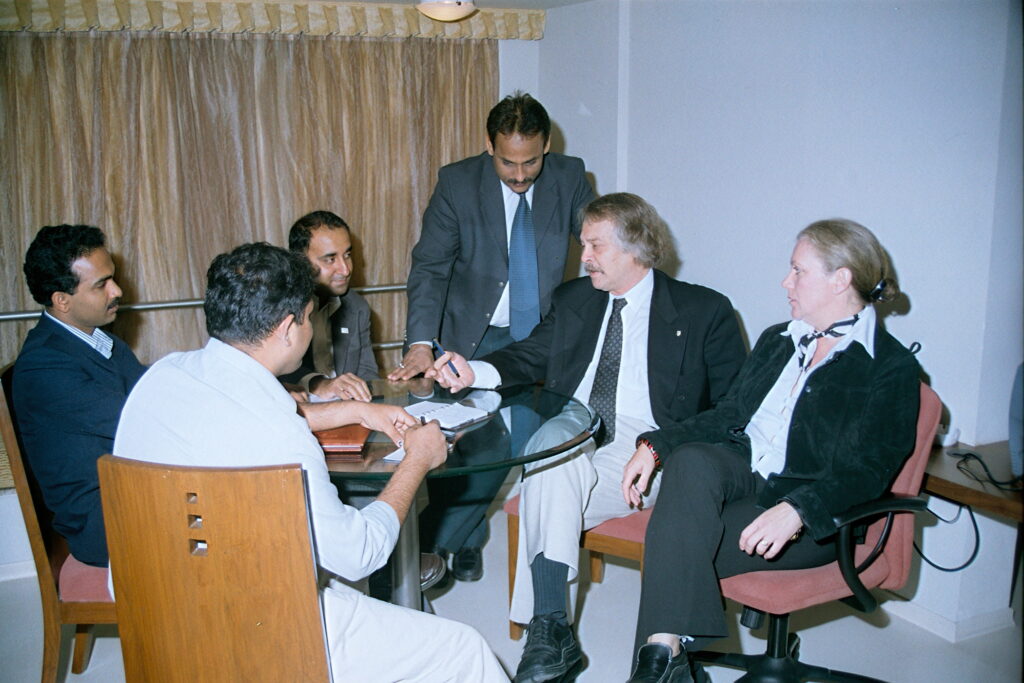
“When I came here in 1979 there was no international course in the school. None. So, I introduced the very first course we had in IB.”
Prior to him becoming director of the school in 1993, applications to the university to create the BIB and PhD in Management programs had been fruitless. But that changed once Nicolas and his team took over.
“We managed to get the BIB developed and implemented within months, the first undergraduate business program in Canada that required foreign language learning and a study year abroad – and in another year or so we did the same for the PhD, the first such program in over a decade in Canada and almost two decades in Ontario,” he said.
“Look where we are today. The BIB is still a flagship of the school and the university, the PhD is thriving, and all programs have concentrations.”
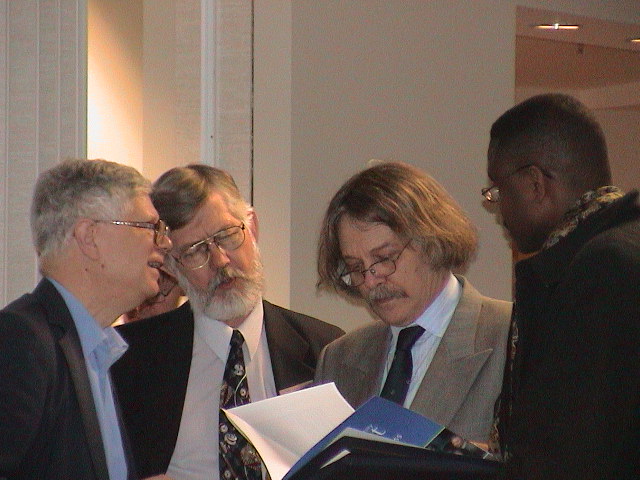
Through it all, Nicolas has kept teaching as a primary focus. An award-winning educator with both the Capital Educators and Graduate Mentorship distinctions, Nicolas estimates he has taught some 5,000 students and has supervised or served on the committees of over 70 graduate students.
The one thing he still enjoys the most is planting an idea and seeing the “the ’A-ha! experience’, as advertisers call it, an epiphany, really, that glint in a student’s eye that says ‘I got it, this makes sense and it’s relevant to me!’”
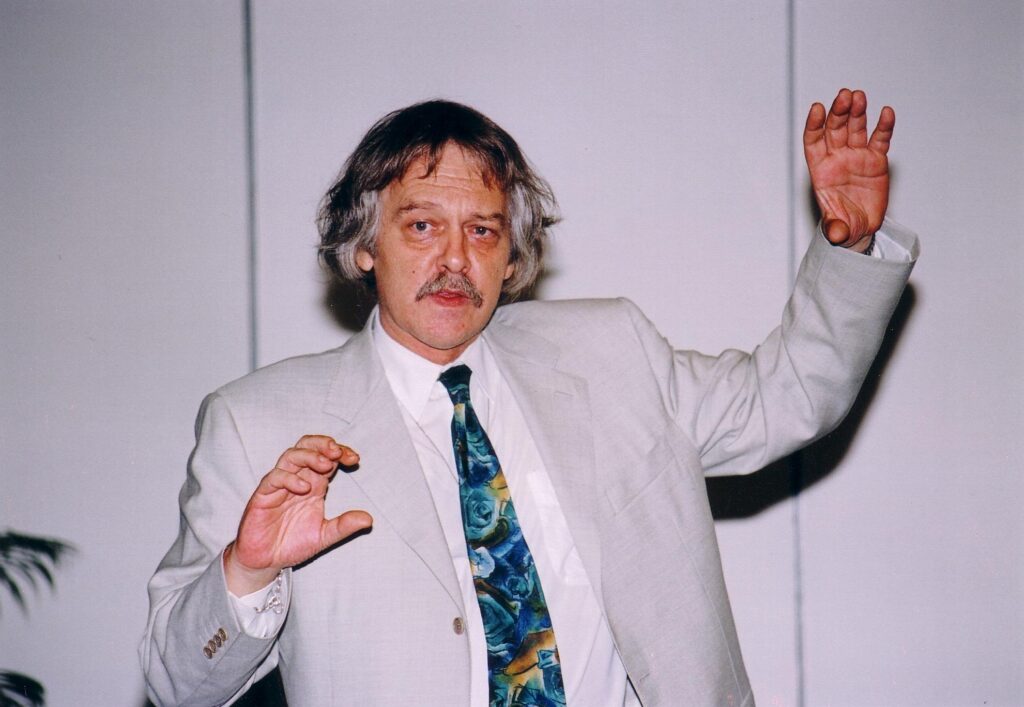
“Once you see this, it’s probably the most enjoyable moment of a teacher. No reward is greater for me, and I’ve enjoyed a lot of those, thankfully.”
He used the words of Dr. Geraldine Kenney Wallace, the former Chair of the Science Council of Canada and president of McMaster University, to describe what he believes education is all about: “Education is about imparting the confidence to ask a question and the responsibility to find the answer.”
“My mantra for students as they evolve has always been learn, learn, learn, learn, learn,” he said. “Keep your eyes and ears open, your antennae up at all times. Because there is absolutely nothing you’re doing in life that you cannot learn from.”
“Many of my students would probably be sick and tired of listening to me say ‘engage’! Don’t be like a passive theatre goer, just watching scenes go by.” Irinela shares this principle and has been his partner and contributor in everything they’ve done, in both personal and academic life, during their 52 years together.

“So, retirement perhaps, but Back to the Future for sure!”, Nicolas says.
It is remarkable but not surprising, then, given his emphasis on both research and teaching, that many of their personal friends today are former students and that more than 40 per cent of his papers are co-authored with people he has taught. And now, as he starts his next chapter, he has one last message for students, faculty, and staff at Sprott:
“Believe in Sprott and in Carleton. Both are fantastic places. Believe that they are indeed different, tell others, and invest in making them even better – you’ll be paying it forward for others and also backward for yourself.”